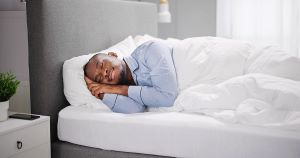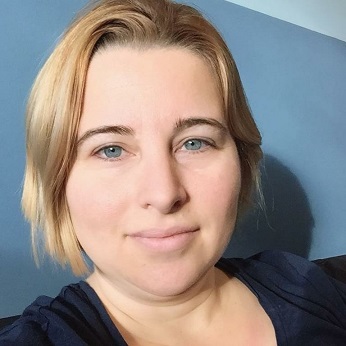September 26, 2023
by Patricia Tomasi
 A new study published in the Journal of Emotion looked at the influence of sleep on subjective well-being through an experience sampling study.
A new study published in the Journal of Emotion looked at the influence of sleep on subjective well-being through an experience sampling study.
“In the study we wanted to find out, how various indicators of sleep influence well-being on the next day. We were hoping to find multiple associations between sleep and well-being,” study author Dr. Anita Lenneis, from the University of Warwick’s Department of Psychology, told us. “We pre-registered our ideas of how the results would look like in advance.”
Researchers took their ideas from previous literature. They hypothesized that higher than average sleep satisfaction, lower than average daily social jetlag, higher than average actigraphy-derived sleep efficiency and taking shorter than usually to fall asleep would be associated with a better mood and life satisfaction (i.e., well-being) on the next day. For sleep duration, they hypothesized that sleeping shorter or longer than normally would be associated with worse mood and life satisfaction on the next day.
“Sleep is a topic that is relevant to all of us and it’s nowadays seen as equally important to our health as diet and exercise,” Dr. Lenneis told us. “I found it interesting to see how something as important as sleep also influences our daily functioning.”
Study participants completed a sleep diary on a mobile phone application for two weeks. They also wore an actigraph on their wrists which estimates their sleep patterns and rest cycles. During the two weeks, our participants also were asked five times a day at random times how they felt at the moment and how satisfied they were with their lives. The researchers used a so-called “experience sampling method” which helped them to study our participants in the real world.
“We found that self-reported sleep satisfaction was most consistently linked with well-being on the next day,” Dr. Lenneis told us. “The actigraphy-derived measure of sleep quality (i.e., sleep efficiency) was not associated with well-being at all.”
The researchers were a bit surprised that other sleep variables only played a little role in next day’s well-being. However, previous research has shown that it often is perception of health and not objective health which is associated with well-being which is similar to our findings.
“In our study, we suggested that changing your perception of how you have slept may better your overall well-being.” Dr. Lenneis told us. “I think it would be interesting to find out if it really works.”
About the Author
 Patricia Tomasi
Patricia Tomasi
Patricia Tomasi is a mom, maternal mental health advocate, journalist, and speaker. She writes regularly for the Huffington Post Canada, focusing primarily on maternal mental health after suffering from severe postpartum anxiety twice. You can find her Huffington Post biography here. Patricia is also a Patient Expert Advisor for the North American-based, Maternal Mental Health Research Collective and is the founder of the online peer support group - Facebook Postpartum Depression & Anxiety Support Group - with over 1500 members worldwide. Blog: www.patriciatomasiblog.wordpress.com
Email: tomasi.patricia@gmail.com